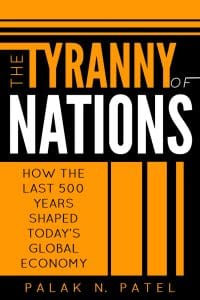In 1800, the Shogun’s chief minister wrote the following about the city of Edo:
In 1800, the Shogun’s chief minister wrote the following about the city of Edo:
Books, alas, don’t always come in the right order. Having recently reviewed Oliver Craske’s excellent biography of Ravi Shankar, I found myself wishing that I could have read Finding the Raga before undertaking that task. Amit Chaudhuri, well-known Indian novelist and essayist, is also a singer and a musician, but not just any musician. Thoroughly-versed in both Indian and Western classical music, he also has a wide experience of Western popular genres (particularly American folk music), Indian film music and the songs of Rabindranath Tagore.
A short story is an unlikely review subject, but “Person of Korea” has several things going for it: first, it’s by Paul Yoon and in its detached observational style is illustrative of the author’s other work. Second, it’s set among the Korean diaspora in the Russia Far East; although the Russian Far East has begun to feature in an increasing amount of fiction, the only other work with this particular combination that comes to mind is Jeff Talarigo’s The Ginseng Hunter. And third, it’s available online at The Atlantic.
The Karakoram Mountains, located for the most part in north-eastern Pakistan, contains four of the world’s fourteen 8000m peaks and four of the longest glaciers outside the polar regions. Photographer Colin Prior has been “fascinated” by the Karakoram for the better part of a half-century, and traveling there for a quarter-century, and it shows.

The Tyranny of Nations places the ground-shaking political and economic events of modern times in context. Palak Patel draws on his experience investing in government bond markets to demonstrate how the present fits a specific historical pattern that has defined the past 500 years.
In Touring the Land of the Dead, author Maki Kashimada writes about one woman’s trauma with razor-perfect concision and an austere beauty.
It is not unusual for journalists from leading publications to turn their hand to books, but it is less usual for such books to have started off in Chinese. Jin Xu is senior editor and chief financial commentator at the Financial Times Chinese and her 2017 monetary history of China, Empire of Silver, has just been released in English in a translation from the well-regarded Stacy Mosher.
Catherine Menon’s debut novel, Fragile Monsters, is a beautifully written story of one Indian Malaysian family’s history, entwined with secrets and hidden heartbreak, told through the fractious relationship of Durga and her Ammuma, her grandmother Mary. When Durga, a mathematics lecturer returns home to rural Pahang after ten years away in Canada and in Kuala Lumpur, to spend Diwali with Mary, the pair are forced to untangle the mystery of their past. “Stories twist through the past like hair in a plait,” Durga says.
From its more mainstream, business-focused and business-friendly “Lean In” variants, to more radical, critical and intersectional understandings of feminism, the past decade has seen a flourishing of discussion from those proposing and critiquing different schools of thought for the way we think about gender in society.
Many cultures under, or in the shadow of, an empire sometimes make use of that empire’s language to express themselves. Latin was used throughout Europe, while for a couple of centuries after the Norman conquest, the dominant written language in England was French. China exerted a similar cultural pull over its neighbors: Japanese poets would write kanshi and Koreans hansi, both terms being probably derived from the word Han, referring to the Han Dynasty (206 BCE-220 CE) in China. For both, using written Chinese was to make a cultural statement, indicating that these writings were for an elite class of people. Furthermore, despite the invention of hangul, an optimized Korean script, by king Sejong in the 15th century, classical Chinese—both the language and the script—remained the preference of Korean literati for several centuries. Hangul did not in fact hit its stride until well into the 19th century; and, given their acute sense of class-consciousness, Koreans may simply have felt more comfortable reading their stories in classical Chinese.
You must be logged in to post a comment.